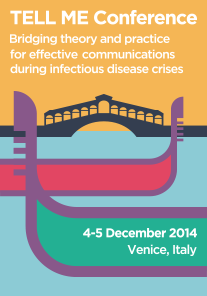D2.2 - Report on Stakeholder Communication Requirements
The effectiveness in outbreak communications mostly relies on meeting the information needs or demands of various key stakeholders in the process. Communications in public health emergencies have multiple layers, and the landscape becomes even more complex in the case of infectious disease outbreaks, which have the potential of turning into a pandemic.
This report explored the stakeholder communication requirements during an infectious disease outbreak, analysing their fundamental principles and the mechanisms on which the communicative processes are based.
In order to do so, the authors submitted a questionnaire to 51 representatives of healthcare national authorities, international organizations, academic institutions and non-governmental organizations. The results provided some indications about communication requirements during epidemics, which have been summarized by the authors into eight advices:
- Public health authorities should broaden the stakeholder base in outbreak communications to actively engage in the process healthcare providers, academics and local media.
- Epidemiological information from international surveillance and early warning systems should be made available to non-institutional actors, and especially the wider scientific community.
- Risk assessments are particularly important in public health emergencies and should comprise a basic tool for communications with the general public, as did by the ECDC during the H1N1 pandemic in 2009.
- The information needs of journalists and healthcare workers are commonly overlooked during public health emergencies, and would merit more attention by public health authorities.
- It is necessary to dedicate more attention to ethnic minority groups, since they receive poor quality information and a lesser amount of attention by public health authorities in the event of infectious disease outbreaks.
- It is necessary to strengthen the information flow towards the transportation sector (airport, railway and ports authorities), since they could play a relevant role in the containment of a pandemic but receives poor quality of information by public health authorities.
- Effectiveness in outbreak communication could increase through development of a communication model that integrates key elements from existing one-way and two-way means of communication.
- General practitioners (GPs) and healthcare professionals (HCP) should be more involved in the communicative process, since they represent the more appropriate and reliable actors to inform the more vulnerable groups of society about preventive measures in response to an infectious disease.
Read the document online:
D2.2 - Report on Stakeholder Communication Requirements


